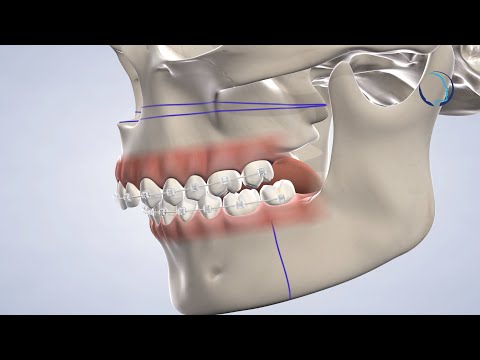Treat Bite Problems, Sleep Apnea, and More
When the jaws are not properly aligned, they can cause chronic facial pain, bite problems, or negatively impact the ability to breathe and speak. Orthognathic surgery is an advanced surgical procedure that involves repositioning the jaws, improving oral function and facial aesthetics.
Dr. Garibyan and Dr. Kuang are talented, board-certified oral surgeons in Massachusetts who specialize in managing conditions of the head and neck while promoting the safety and comfort of patients. This includes diagnosing and treating overbites, underbites, obstructive sleep apnea, and facial asymmetry with corrective jaw surgery. If you experience any of these issues, we invite you to contact Premier Center for Oral, Dental Implant & Facial Surgery to see if orthognathic surgery is right for you.
Who Needs Orthognathic Surgery?
Many patients can benefit from corrective jaw surgery, although this procedure is not recommended for younger patients because the jaw has not fully developed yet. In some cases, orthodontics alone can correct bite misalignment, but when the issue is severe, surgical intervention may be necessary.
Orthognathic surgery may be recommended if you have any of these conditions:
- Overbite
- Underbite
- Open bite
- Chronic facial pain or TMJ disorder
- Obstructive sleep apnea
- Protruding chin or receding chin
If you or your child experience these oral health issues, we invite you to contact our office for a consultation. Our experts will examine your oral health using advanced 3D scans and create a treatment plan that’s right for you.
The Jaw Surgery Process
Before Surgery
During the consultation visit, we will create your treatment plan and walk you through each step. Jaw surgery is a safe and highly effective procedure that is performed in a hospital using general anesthesia for optimal comfort. As part of the treatment planning process and throughout your care, your oral surgeon will work closely with your orthodontist to track your progress and monitor healing.
In most cases, you will wear braces before your jaw surgery to prepare your mouth. You can expect several appointments between your oral surgeon and orthodontist to plan out the exact details of your procedure. With our advanced 3D equipment, we can even show you what your face will look like after treatment.
During Surgery
On the day of your surgery, you will come to the hospital, and we will administer the anesthesia. Your oral surgeon will make incisions intraorally or along the lower jaw so that scars are not visible. Jaw surgery can be performed on the upper jaw (maxilla), the lower jaw (mandible), or both depending on your needs.
Your surgeon will reshape the bone as necessary, move it into its new position, and use plates and screws to hold it in place. Stitches are placed to close incisions, and your surgery is complete. You can expect to stay in the hospital for several days, where your surgeon will monitor you. When you’re ready to leave, we will provide instructions on what to eat and how to maintain good oral hygiene while healing.
After Surgery
Recovery from jaw surgery can take several months. After this healing period, your orthodontist will use braces to align your teeth. The length of time for your braces will depend on your teeth’s alignment and if there are other orthodontic issues that need to be addressed. Once your braces are removed, you will have a retainer to wear that keeps your teeth aligned.
Do You Have Questions For Us?
Schedule your consultation to learn how our surgeons can best serve you.
Orthognathic Surgery in Massachusetts
Jaw surgery is a life-changing procedure that greatly improves the ability to speak, eat, and breathe. Patients who undergo this treatment experience a significant improvement in their daily lives and confidence. If you or your child would like to explore your oral surgery options, including orthognathic surgery, contact Premier Center for Oral, Dental Implant & Facial Surgery today.




